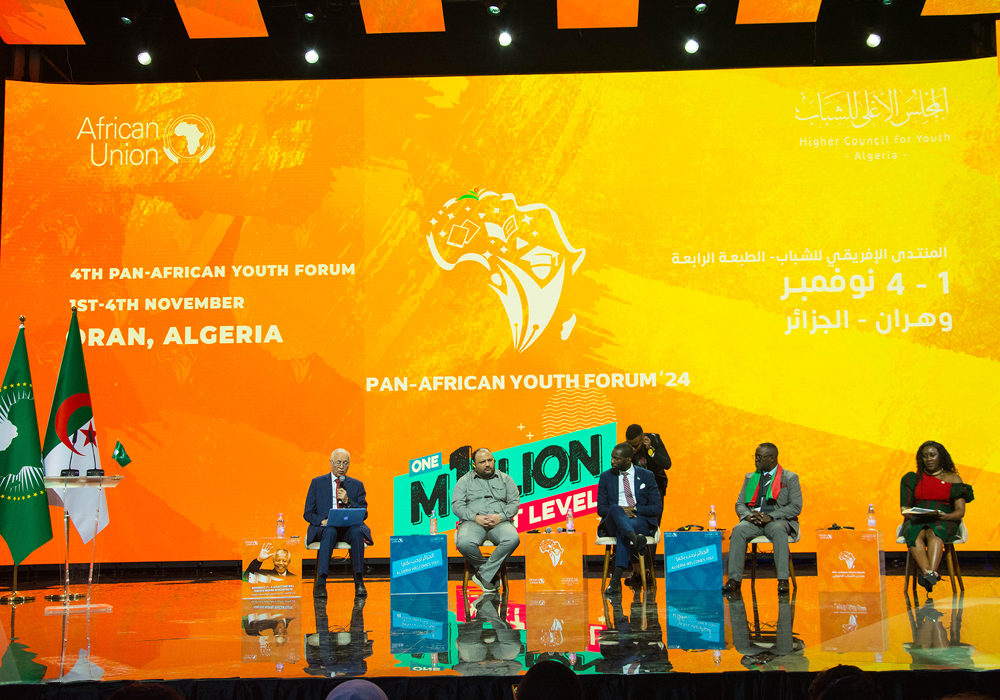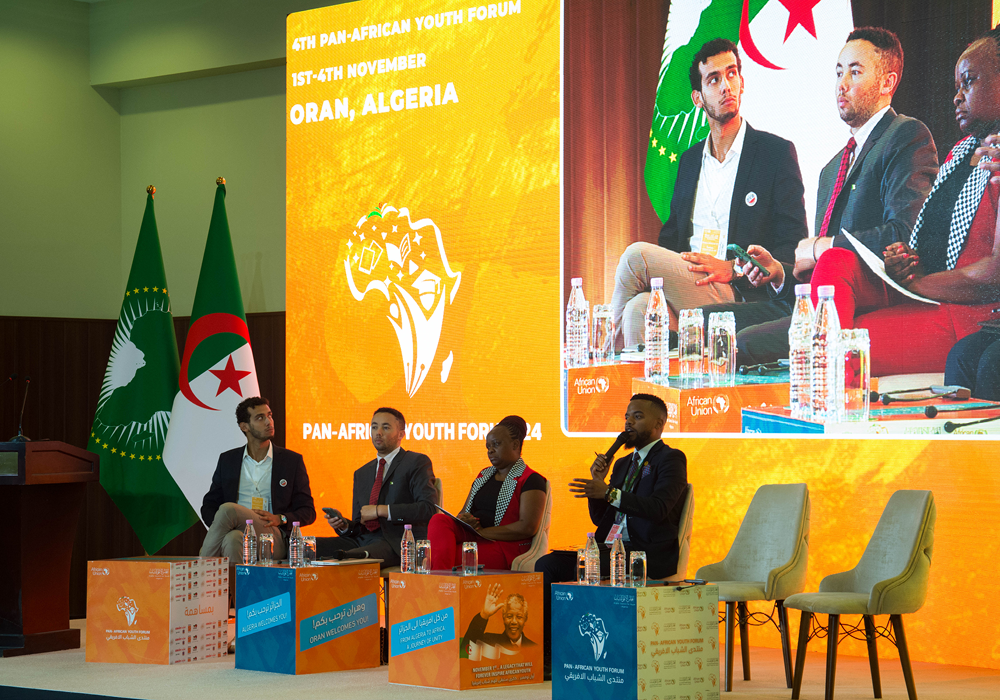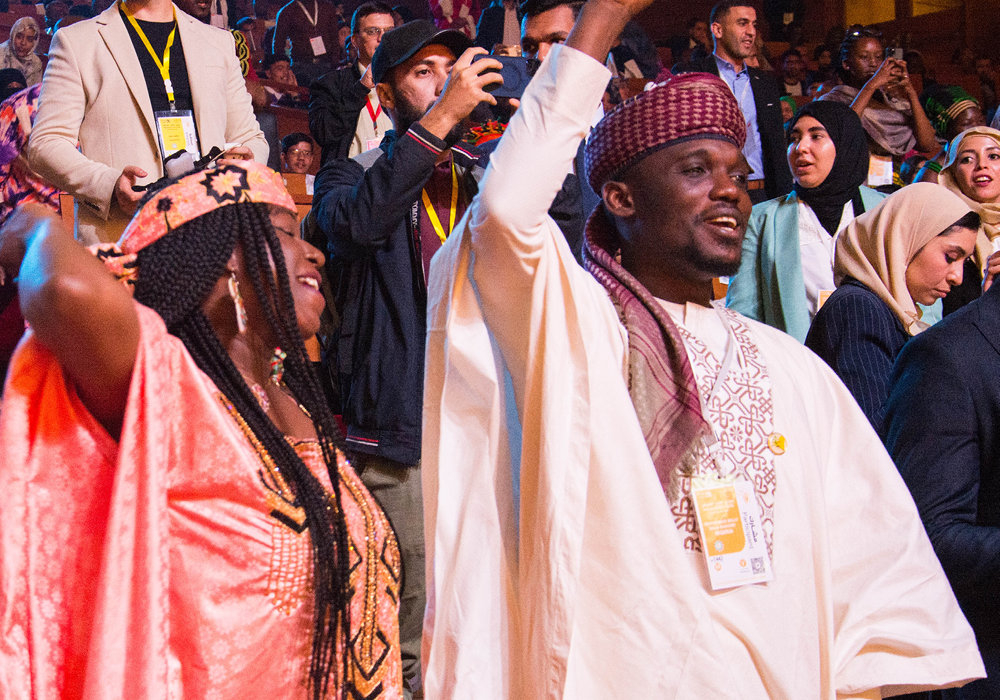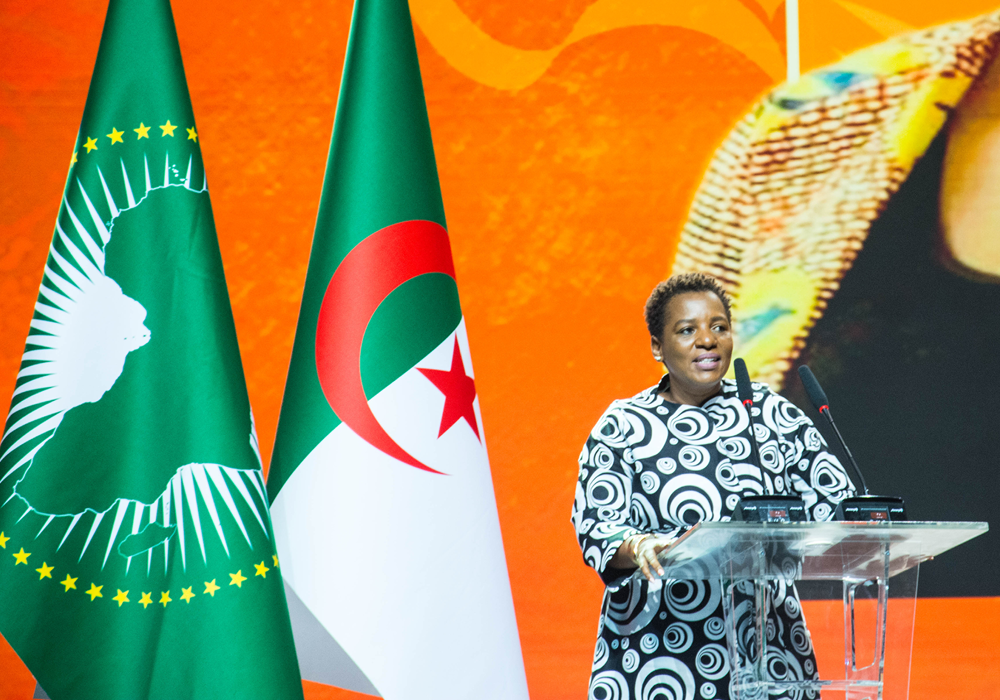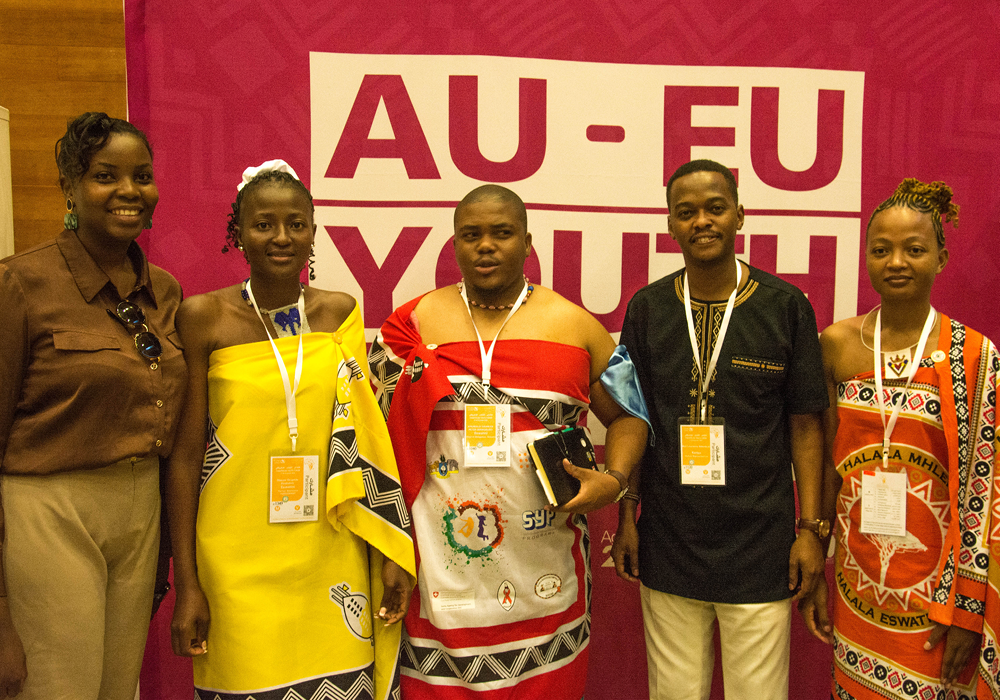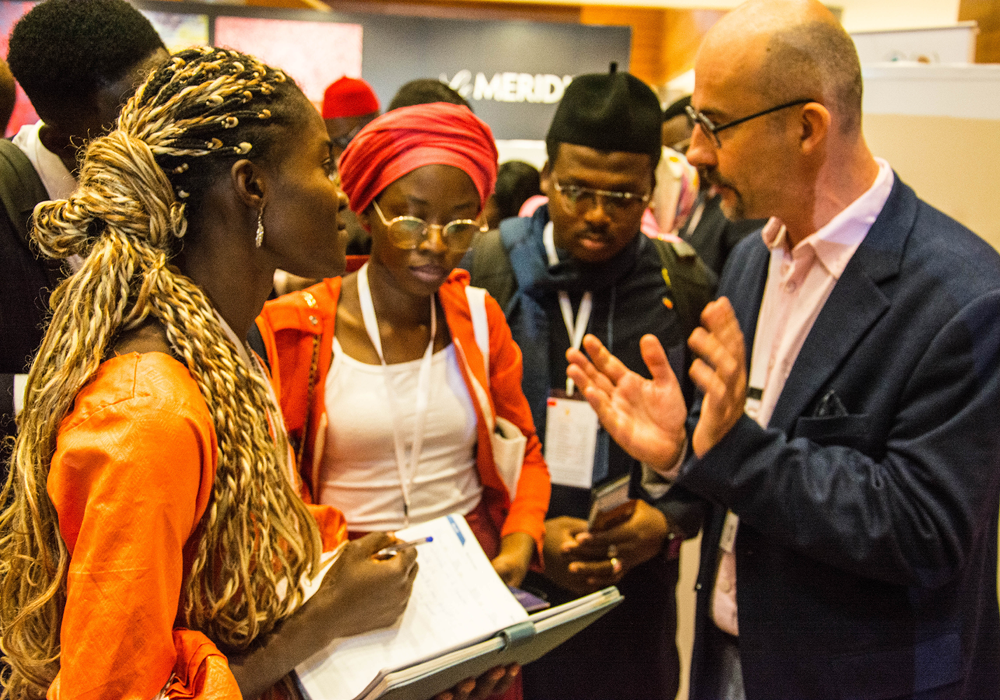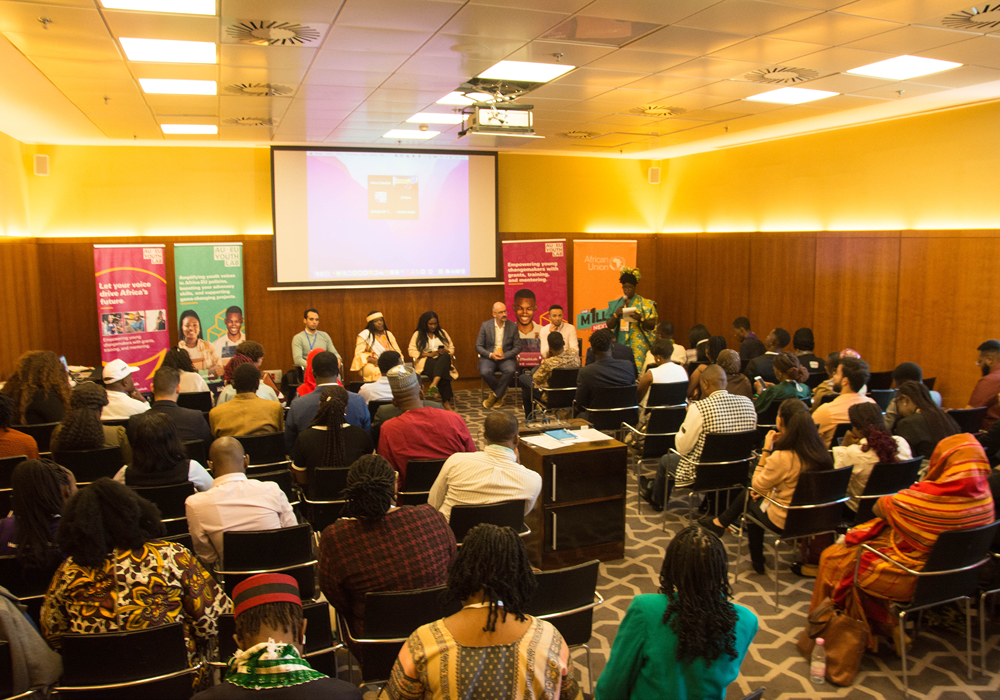Pan-African Youth Forum 2024: A Discussion with Africa’s Young Leaders
The Forum’s Purpose
As the largest demographic group in Africa, the youth are pivotal in driving social, economic, and political change. The Pan-African Youth Forum 2024, held in Oran, Algeria from November 1-4, gathered over 600 young leaders from across the continent under the theme “1 Million Next Level is Knocking: Educate an African Fit for the 21st Century.”
The forum highlighted the need for greater youth participation in policy and decision-making processes in Africa, ensuring that their voices are heard and their needs addressed. The opportunity aimed to celebrate and recognise the contributions of young people to Africa’s development. The core discussions addressed current challenges and opportunities by revisiting the African Youth Charter adopted in July 02, 2006, guided by several agreements, along with it, The New Partnership for Africa’s Development Strategic Framework for Youth Programme of 2004 that works towards youth empowerment and development.
Participants engaged in discussions and activities designed to empower them in education, employment, and entrepreneurship, and to foster youth-led solutions and leadership across the continent.
Discussions and Declarations
The forum’s discussions culminated in the draft Oran Declaration, a significant document with input from the youth representatives from different African countries, aimed at addressing key areas pertinent to the development of Africa’s youth. These areas included:
- Education and skills development: The importance of innovation and digital literacy to prepare young Africans for the demands of the 21st century requires recognising the value of skills for both academic achievement and employment. The declaration calls for member states to adopt these criteria as a basis for merit. Moreover, it proposes that the decade from 2025 to 2035 be declared the African Union Decade of Education, underlining the critical role of education in transforming the lives of young people.
- Employment and economic opportunities: Advocating for robust support for youth-led businesses and fostering public-private partnerships to create more job opportunities underscores the promotion of youth volunteerism as a pathway to secure decent employment through volunteering to enhance employability. Additionally, the declaration calls for addressing the issue of brain drain by creating conducive environments for young talents to thrive within the continent and actively supporting youth participation in the African Continental Free Trade Area (AfCFTA) to drive economic integration and growth.
- Youth empowerment and participation: The promotion and enforcement of the African Youth Charter to ensure the inclusion of young voices in shaping Africa’s future. This calls for the acceleration of the ratification and implementation of youth policies across member states, ensuring that these policies are not only adopted but also effectively put into practice. Furthermore, the declaration advocates for the establishment of youth-led accountability mechanisms to oversee the progress of these initiatives. It also highlights the importance of inclusive policies that specifically address the needs of marginalised groups, ensuring that young women and other disadvantaged youth are fully included in development programs and decision-making processes.
- Health and well-being: Advocating for the establishment of youth-friendly health systems that are accessible and responsive to the specific needs of young people through universal access to reproductive health services, ensuring that all young people can obtain the care and information they need for their sexual and reproductive health. Encouraging investment in youth-led health research generates innovative solutions to health challenges facing the youth. The discussions highlighted the potential of digital health solutions to improve the accessibility and efficiency of healthcare services, particularly for young people in underserved areas, by leveraging technology to bridge gaps in the health sector.
- Environmental sustainability: Recognising the essential role of youth in environmental matters means the incorporation of youth perspectives into national climate policies, ensuring that young people’s voices and innovative ideas are included in the formulation and implementation of these policies. The declaration promotes green entrepreneurship and sustainable practices, encouraging young Africans to engage in environmentally-friendly business ventures and adopt practices that contribute to the long-term health of the planet.
- Peace, security, and good governance: The youth’s active inclusion in peacebuilding processes and governance reforms calls for comprehensive strategies to prevent terrorism and address the root causes of conflict, recognising that sustainable peace is closely linked to addressing underlying social, economic, and political issues. The declaration highlights the importance of engaging African youth abroad in the continent’s development agendas, encouraging the diaspora to contribute to peace and prosperity in their home countries. This fosters a more secure, stable, and well-governed Africa, where youth are empowered to lead and shape the future.
- Digital transformation and innovation: The need to bridge the digital divide through significant investments in digital infrastructure aims to ensure that all youth, especially those in rural areas, have access to affordable internet and digital resources. This means supporting youth-led startups and innovation hubs, fostering a culture of creativity and technological advancement that can address socio-economic challenges across the continent. Additionally, the integration of digital skills into education systems and the enhancement of cybersecurity measures protects young people from online threats, maximising the potential of the digital economy while ensuring a safe digital environment for the youth.
AU-EU Youth Lab Programme
A notable feature of the forum was the presence of the AU-EU Youth Lab Programme which supports the key areas addressed by young Africans. This programme builds on the success of previous youth cooperation efforts between Africa and Europe, focusing on advancing youth participation, providing training and capacity building, and supporting youth-led initiatives through financial aid.
The sessions by the AU-EU Youth Lab Programme offered the opportunity to share information, discuss and clarify how the programme promotes intercultural exchange, tackles poverty and corruption, and addresses climate change, contributing to the overall development and peace in Africa and Europe. The programme works through enhanced youth engagement, empowerment, and connection, alongside improved intergenerational partnerships at local, national, continental, and cross-continental levels.
Future Expectations
The draft Oran Declaration will be presented for adoption at the upcoming Ordinary Session of the Assembly of the Heads of State and Government of the African Union. If adopted, it will mark a significant step towards addressing the issues that affect the youth, aligning with the vision of “the Africa we want.” The forum’s impact extends beyond policy, as it also aims to inspire and empower young Africans to take active roles in shaping their future.
“Giving spaces to young people to express themselves is not enough to engage them. Adults should mentor, share decision making with youth, and involve the marginalised and excluded.” – Rokhaya, Senegal – Voices of Youth.
“We celebrate not only the achievements of African youth, but also their diverse voices and perspectives that drive the Africa that we want.” – Ms Prudence Ngwenya – Director, Women, Gender and Youth Directorate (WGYD) – African Union Commission.
The Pan-African Youth Forum 2024 not only provided a platform for dialogue and collaboration but also laid the groundwork for actionable plans that aim to transform the lives of young Africans and the continent as a whole.
